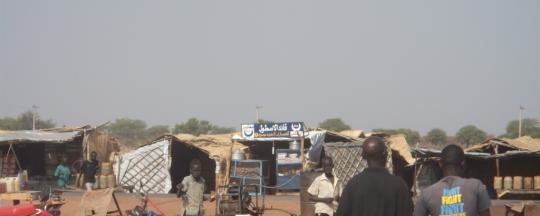Attempts by the Abyei Area Administration to impose price controls on traders have worsened fuel shortages because traders are unwilling to import or sell fuel at low prices, given the low value of the South Sudanese pound in the parallel market.
In Abyei, a border area with Sudan, a 20‐liter jerrycan of diesel can cost now more than 500 SSP on the black market. But authorities have tried to force traders not to sell for more than 180 SSP. They are threatening to seize fuel from traders and fine them for non-compliance with the new price cap.
Fuel trader Pajok Mithiang Amiyok criticized the order saying it was impossible to sell a jerrycan for 180 SSP when he was paying at least 300 SSP in markets such as Bentiu and Wau before bringing the fuel to Abyei.
He said there had to be a free market, which would lead to prices falling. If a price cap was imposed, traders would not sell, he said.
On the other hand, Monyluak Mayol Deng Agok, chairman of the Abyei trade chamber, said that he would try to ensure that sellers obey the order. He said anyone found hoarding fuel would have their supplies taken from them, sold at an “acceptable” price, and fined 1,500 ssp.
Kuot Kuko, a driver for the Abyei Area Administration, said that he had difficulty finding fuel. Speaking last week, he said he had searched for fuel all morning wihtout finding any.
A boda boda driver in Agok, Ring Biong Kuol, said he believed traders were hoarding fuel because they had been ordered to sell at the fixed price. He said he had been forced to increase his fares, but many people were unwilling to pay and he had little business.
Ateng Mou Atem, who lives in Agok but works in Abyei Town, said that transport was now costing half her monthly salary of 600 SSP. She sometimes saved money by making the journey on foot, which took seven hours each way.
Reporting by Abyei Today



